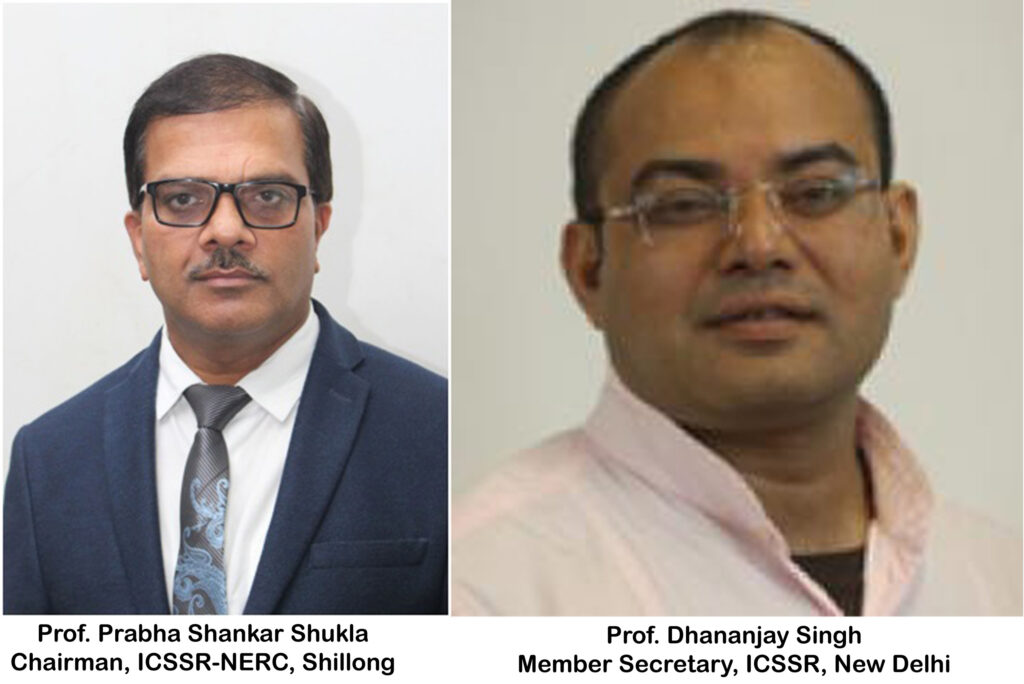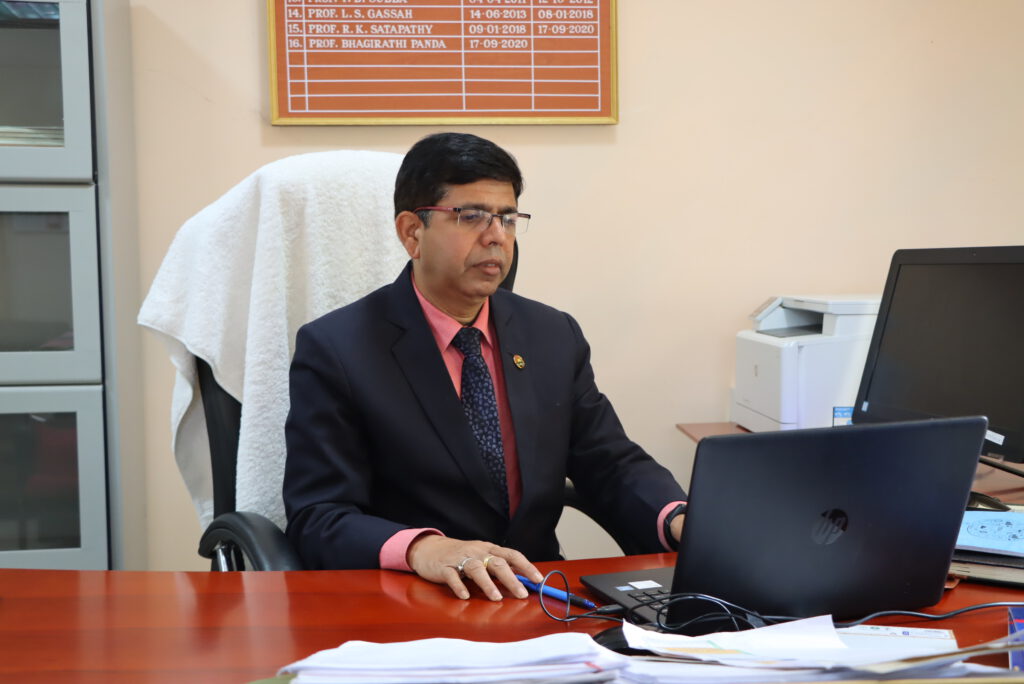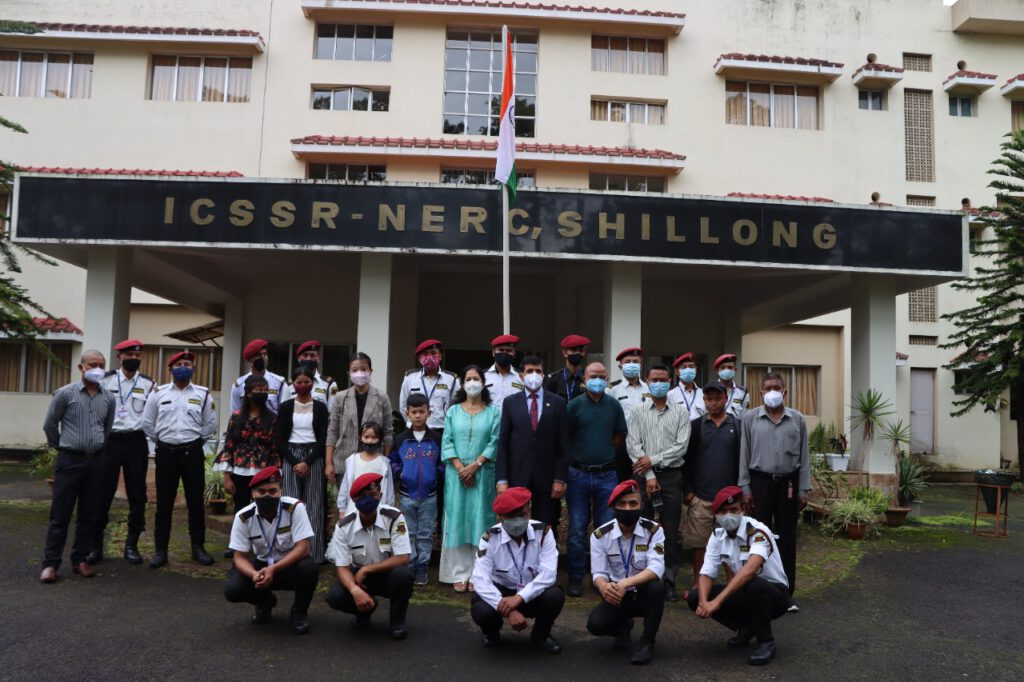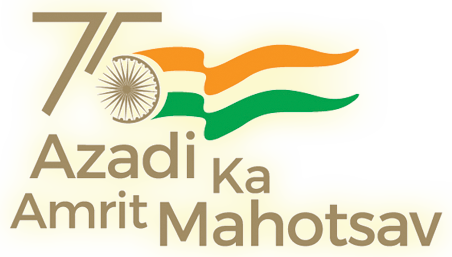Man and Society: A Journal of North East Studies
Volume XXI, Winter 2023
List of Articles and Abstracts:
Surface Connectivity Improvement and
Market Integration: A Study of Impact of Bogibeel and Dhola-Sadiya Bridges in Two Pockets of Northeast Assam
M P Bezbaruah, Mintu Kalita, Jayanta Saud & Alok Ranjan Dutta****
Abstract
One of the factors contributing to market fragmentation in Northeast India is the difficulty of surface communication mainly due to geographical conditions. About 70% of the region is mountainous. Even its plains are geographically separated by the mighty Brahmaputra and its territories. However, over the last decade several of the surface communication projects have been completed. The present study is motivated by the query whether improvement in surface communication has brought about desired market integration. The study is located in the area surrounded by two important bridges – the Dhola-Sadiya Bridge over river Lohit and the Bogibeel (rail-cum road) Bridge over the Brahmaputra. The pockets of particular focus in this area are the Dhemaji district and the Sadiya sub-division of Tinsukia district. In the otherwise relatively prosperous region of the upper Brahmaputra valley, these two relatively disconnected pockets have remained economically somewhat backward. Based on the inputs gathered from field investigations, our findings suggest that changes in the two surveyed areas have gone in the expected lines indicating that the smaller markets in the earlier remote pockets of Dhemaji and Sadiya are in the process of getting integrated to a wider market.
Keywords: Market Integration, Connectivity, Dhola-Sadiya Bridge, Bogibeel Bridge
Cultural Dimension of Kwai among the Khasis
Beena Jayal Sawkmie*
Abstract
The Khasi identity has always been rooted on three main pillars: the belief that they are the ‘children of the seven huts’, the ethical code of conduct guiding thought and action and the matrilineal system. There is however an outlier that neatly binds up their sense of identity that being ‘kwai’. Kwai (areca nut) is always chewed along with ‘tympew’ (betel leaf) and ‘shun’ (lime) and is indispensable both at the individual and social level. It has a place in the everyday life of the people forming what we may call its profane aspect and its role is also seen in rites de passage and other ceremonies which reflect its sacred character. An understanding of how closely the Khasi identity is bound to kwai is possible only by a proper examination of the beliefs and attitudes surrounding kwai and its incorporation into the Khasi way of life.
Keywords: Khasi, Kwai, Tympew, Shun
Cultural Diffusion of Nagas:An analysis of
Easterine Kire’s Bitter Wormwood
R. Poojaa* & Sreeja Balakrishnan**
Abstract
Under the British rule, Indian hill stations like Nagaland faced changes that interplayed with society and culture. In North-East Indian studies, Naga literature in English shows the incessant development of Naga creativity and Naga voice. Cultural changes are documented by Naga writers in contemporary literature. The paper employs eminent Naga writer Easterine Kire’s work to study the changes that occurred in Naga culture. For the purpose, Easterine Kire’s novel Bitter Wormwood is selected. The novel inculcates historical events in the fictional plot and consistent narration of events that are liable for culture change. To find out the possible reasons for culture changes in Nagas, Clark Wissler’s Organized diffusion theory is employed.
Keywords: Culture Change, Diffusion, Easterine Kire, Nagaland, North-East Indian studies
Traditional Socio-Cultural Beliefs and Practices
related with Pregnancy and Childbirth
among the Sumi Nagas, Nagaland
Vinisheli Awomi* & Ahrar Ahmad Lone**
Abstract:
The Sumi tribe is one of the major ethnic communities found in Nagaland. Pregnancy and birthing among this tribe is surrounded by their socio-cultural beliefs and practices. These social events are not only biological events but are socially and culturally constructed which represent their cultural values. The present study was carried out as an initiative to study the beliefs and practices that are associated with pregnancy and child birthing. An interview schedule method of data collection was employed to collect first hand information and the participants were recruited using purposive and snowball sampling methods. Secondary sources like books and articles were also consulted. The most important life cycle among the Sumi community starts with the birth of a new child which is followed by birth rites, rituals, ceremonies, and customary practices. This paper also focuses on the importance and role of traditional birth attendants (midwives) known as ‘Apunu Kujumi’ among the Sumi community.
Keywords: Pregnancy, Birthing, Rituals, Ceremonies, Traditional Birth Attendants
Devadasi institution: Its Origin and Transformation
in Assam.
Jyoti Prasad Saikia* & Alankrita Borthakur**
Abstract
The custom of the Devadasi institution held a significant place in the history of Indian culture. As a part of HIndu tradition, Devadasis and their service to God were positioned in respectable places in India along with the Assamese society. However, with time, this devotional practice experienced a lot of dilution. Since there is a dearth of studies on the evolution of Devadasi institutions in Assam, this paper is an attempt to grasp the historical background of the Devadasi institutions in Assam. This paper also critically analyses the changes in the Devadasi system. This study is based on secondary data with the following findings:a) Devadasi system rose in the medieval era due to the royal privileges in Assam b) The role of Devadasi was to take care of the temple apart from performing devotional dances c)With time the practice of these holy customs were replaced with sexual exploitation of women d)Britisher’s social and economic control over the Indian continent has shaken the Devadasi system with the alternative recognition made by them. Hence, through this study we witness the changes in women’s status in the Hindu tradition. Practically, the study also acts as a background knowledge to understand the growth and development of Hindu traditional practice in Assam.
Keywords: Devadasi Institution, Hindu Tradition, Women, Assam
Revitalizing the Khadi Sector in Village Industries of Assam:
The Significance of Gandhian Principles
Ramanand Pandey* & Bhaskar Kumar Kakati**
Abstract
Khadi is more than just a fabric; it holds significant historical importance within the realm of Gandhian studies. Recent studies and reports conducted by various government agencies in India highlight the potential of the Khadi sector to create employment opportunities and generate income for rural communities. Despite the Government of India’s efforts, including the establishment of the Khadi and Village Industry Commission (KVIC), the challenges faced by individuals involved in the Khadi industry persist. In light of these circumstances, the objective of this study is to examine the relevance of the Gandhian approach in fostering the development of the Khadi industry, focusing on the Khadi and Village Industry Units in Assam that are registered under the KVIC.
Keywords: Covid-19, Informal Economy, Self-reliant, Rural-urban Migration, Rural Empowerment
The Sixth Schedule of Indian Constitution:
Its Genesis and Demand in the Contemporary Politics.
Mohamad, Gukhu Mega* & Sartik Bagh***
Abstract
The British policy of segregation and non-interference was swapped by assimilation and development policies with the birth of independence and the approval of the Constitution of free India. The Indian Constitution provides native communities with a number of protections. There are Shielding Provisions to keep them from all forms of social injustice and exploitation, the Developmental Provisions to endorse education and developmental activities, the Reservation Provisions to certify their representation in legislative bodies and government jobs, and the Administrative Provisions under the Fifth and Sixth Schedules for special administrative setup to provide autonomy of self-governance according to their customary traditions. The tribal people live in contiguous areas, unlike other communities. So, an area tactic was adopted for administrative and developmental purposes. Under the Constitution the “Scheduled Areas” are declared by the President after discussion with the State Governors. These Areas have been selected to protect the benefits of Scheduled Tribes concerning their land and other social matters and are administrated through the provisions of the Fifth or Sixth Schedule. The Scheduled Areas of the North East are protected under the Sixth Schedule provisions; the rest of the other Scheduled Areas are protected by the Fifth Schedule provisions. This paper’s main objective is to trace the historical root of the genesis of the Sixth schedule or Autonomous District Council in India and the demand for the Sixth schedule provision by many tribal-dominated regions in the contemporary politics of India.
Keywords: Sixth Schedule, Autonomy, Democracy, Decentralization, Development.
Co-Governance with Mizo Civic Virtues in Mizoram
Ningthoujam Irina Devi*
Abstract
This paper will attempt to analyse the inherent culture of civic virtues as social capital amongst the mizos in the India’s Northeast State of Mizoram with potentials for co-governance. A closely knit network of reciprocal social relationship can define a good stock of social capital for a community. Community-based Organisation based on such foundation to maintain community well-being with its own institutional structure and hierarchy can act as a good mediating institution with the Government. As these institutions are a part of the social order of society and they govern behaviour and expectations of individuals to a large extent. Public Administration can count on these existing stocks of social capital to build even stronger networks for bringing more dialogue to promote a co-governance.
Keywords: Co-Governance, Social Capital, Community Organisation, Public Service Delivery, Value Based Participation






